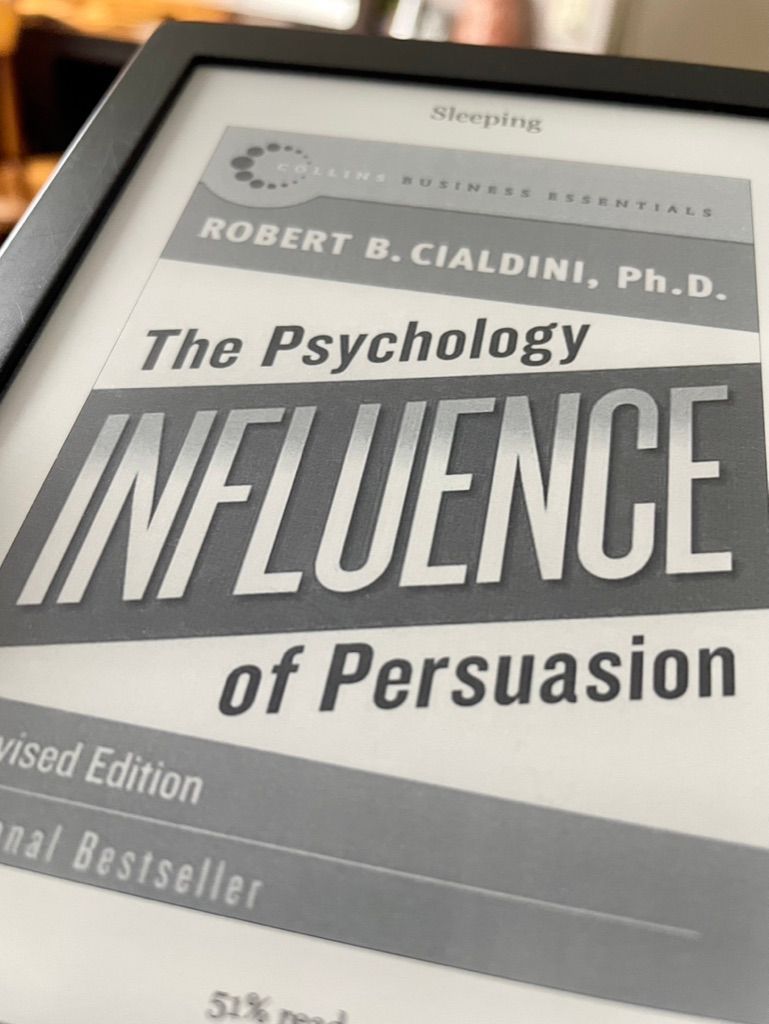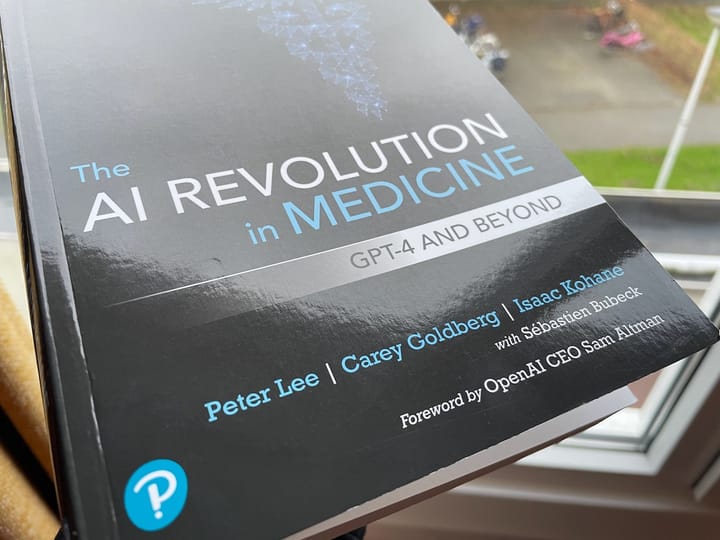Review: Influence, Robert Cialdini
The subtitle is The Psychology of Persuasion. A classic book about six ways by which our behaviour can be influenced.

I love reading about technology and behaviour. Books that inspire me, that I can keep re-reading, I summarize and share them here, alongside reviews of current books.
This book by Robert Cialdini gave me some great insights. It felt like a magician explaining to me how his tricks work. Ah, so that's how it happens! I see it happening before my eyes and I didn't understand it.
The book clarifies some six social-psychological principles that can influence people. Now, in numerous texts, videos and interactions, I can see the underlying principles and respond faster and better to what is happening in myself and in the outside world. I also use the principles to some extent when writing content for sales websites or landing pages.
A very clear, important book. For yourself in ordinary life, for understanding marketing and sales processes. I can definitely recommend it, although I found the book a bit long-winded at times.
But then again, I had already read a summary (via Blinkist) and it hadn't got through to me or stuck with me enough anyway. It's good to work hard sometimes and turn a few pages unread. I read the book as an e-book and highlighted quotes and took notes (on the Kobo).
Reciprocity

People generally feel obliged to return favours they are offered. Sly salespeople often capitalize on this trait by offering potential customers a small gift. Studies showed that even if the gift is unwanted, it will influence the recipient to reciprocate.
The noted archaeologist Richard Leakey ascribes the essence of what makes us human to the reciprocity system: "We are human because our ancestors learned to share their food and their skills in an honoured network of obligation, "he says.
A variation on this theme, known as the "door-in-the-face technique", is to ask for a particularly large favour. When this is refused, a smaller favour is requested. This is likely to be successful because a concession from one party (toning down the favour) will be reciprocated by a concession from the other party (agreeing to the smaller favour).
The need to reciprocate had transcended great cultural differences, long distances, acute famine, and immediate self-interest.
Commitment and consistency

People have a general desire to appear consistent in their behaviour. People also generally value consistency in others.
It is, quite simply, our nearly obsessive desire to be (and to appear) consistent with what we have already done. Once we have made a choice or taken a stand, we will encounter personal and interpersonal pressures to behave consistently with that commitment. Those pressures will cause us to respond in ways that justify our earlier decision.
This desire for consistency can be exploited by getting someone to make an initial, often small, commitment, known as the "foot-in-the-door technique". Subsequently, requests can be made that are consistent with this initial commitment.
People also have a strong desire to honour commitments made by further justifying and motivating them. Sellers exploit this with the so-called "low-ball" technique, where buyers agree to an attractive offer before it is modified to be less favourable to them and more profitable for the seller.
This pattern of behaviour towards or resulting in a negative outcome is called escalation of commitment.
Social proof

People generally look at other people similar to themselves when making decisions. This is especially noticeable in situations of uncertainty or ambiguity.
Once again we can see that social proof is most powerful for those who feel unfamiliar or unsure in a specific situation and who, consequently, must look outside of themselves for evidence of how best to behave there.
This trait has led salespeople to give false information about what others are doing. Examples include staged interviews in television advertisements or "infomercials".
Liking

People are more likely to accept offers from people they like. There are several factors that can influence people to like some people more than others:
- Physical attractiveness can give people a halo effect that makes others more likely to trust them and see them as smarter and more talented.
- People tend to like people who are most like themselves.
- People tend to like people who give them compliments.
- People with whom they are forced to work together to achieve a common goal tend to form a trust with those people.
- People tend to like people who make them laugh. For example, many lectures start with a joke.
Each of the above methods may not help influence people, but in combination, their effects can be magnified.
The clearest illustration I know of the professional exploitation of the liking rule is the Tupperware party, which I consider the quintessential American compliance setting.
Authority

Stanley Milgram's Milgram experiment provided some of the most stunning insights about the influence authority can have on others.
Con artists, for example, drape themselves with the titles, clothes, and trappings of authority. They love nothing more than to emerge elegantly dressed from a fine automobile and to introduce themselves to their prospective “mark” as Doctor or Judge or Professor or Commissioner Someone. They understand that when they are so equipped, their chances for compliance are greatly increased. Each of these three types of symbols of authority has its own story and is worth a separate look.
People often respond automatically to orders from authorities and even to symbols of authority (such as academic degrees, uniforms, expensive cars, etc.), even when their instincts suggest that the orders should not be followed.
Scarcity

People tend to want things when they are less available. This has led advertisers to advertise goods as "limited availability" or "only for a short time".
It has also been shown that when information is restricted (such as by censorship), people want the information more and value it more.
Items also gain higher value when they were once available in large quantities, but have now become scarce.
The idea of potential loss plays a large role in human decision making. In fact, people seem to be more motivated by the thought of losing something than by the thought of gaining something of equal value.



